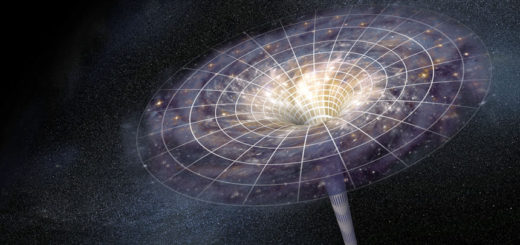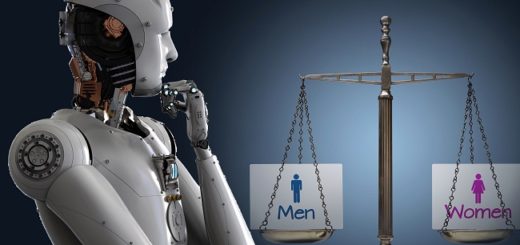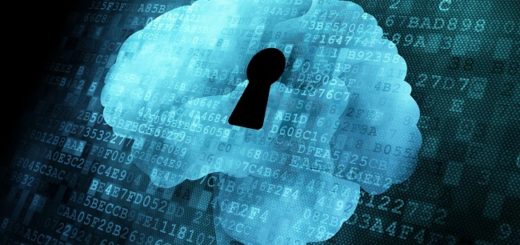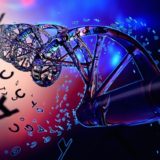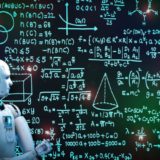The importance of Artificial Intelligence: Technology that brings future change
by Ready For AI · July 25, 2018
If we need to evaluate the importance of artificial intelligence for humans in the future, I can boldly say that artificial intelligence is as great and important as the use of electricity in the 19th century.

Everything starts with entropy
The so-called entropy in chemistry and thermodynamics is a measure of the total amount of energy that cannot be done in terms of kinetics. That is, when the entropy of the population increases, its functional power also decreases. The measure of entropy is an indicator of energy degradation. Entropy is also used to calculate the out-of-order phenomenon in a system, that is, to calculate the degree of confusion in the system. Entropy is a function that describes the state of the system, but it is often analyzed and compared with the reference value and variation of entropy. It has important applications in cybernetics, probability theory, number theory, astrophysics, life sciences, etc., in different disciplines. There are also more specific definitions that are derived and are important parameters in various fields.
The reason for the entropy can be understood as the energy conversion, most of the energy will be converted into a preset state, such as thermal energy into mechanical energy, electrical energy into light energy. However, there is still a part of the energy that will generate a new state, which can be seen as entropy.
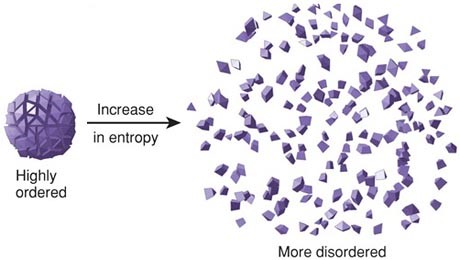
What happens without processing entropy?
The generation of entropy is more than the generation of new states, the possibility of energy increases, the system tends to be chaotic; the less entropy produced represents less new state, the possibility of energy is less, and the system tends to be stable, relatively speaking More orderly. It can be said that energy conversion will increase the chaos of the system, and entropy can also reflect the chaos of the system.

The greater the energy of the conversion, the more new states will be created. High-energy systems are not as stable as low-energy systems, not only because the former is more prone to energy conversion, but also because more states (ie, more entropy) are created during the conversion process. The second law of thermodynamics tells us that all closed systems will eventually tend to be the most chaotic state unless externally injected with energy to process entropy.
Extending into life, the existence of entropy can prove that if no external force is exerted, things will always develop toward a more chaotic state. For example, if no one cleans the room, it will only become more and more chaotic, and it will not be getting cleaner.

Social progress requires more powerful energy to process entropy
Looking back at the historical track of human development, it is not difficult to find that major changes in human society are accompanied by advances in technology, and new technologies have enabled humans to acquire new powers (including new knowledge) to solve the original problems.

Stone processing technology
Humans have learned to use stone as raw material, and processed into various tools to hunt or open hard food shells, which greatly enriched the choice of food, and finally made most people have settled life and gradually entered the clan society.
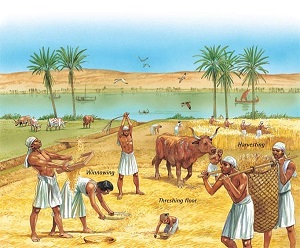
Farming technology
Humans have mastered the technology of grain planting and processing, which can maximize the utilization of crops to convert solar energy, meet their own energy needs and produce surplus, and then promote the clan to different levels, with city-states and leaders.
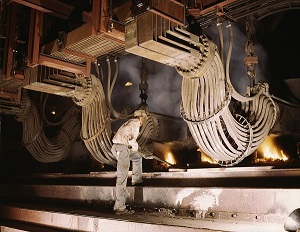
Smelting and forging technology
Humans have mastered the metal smelting and forging technology to produce better agricultural tools, so that the planting efficiency can be greatly increased to support more people, and the new weapons are produced on a large scale, which makes the war between the lords into normal. As some clans were conquered or destroyed, a huge feudal kingdom was gradually established.

Papermaking and printing
Humans cultural records can be spread on a large scale at low cost for the first time, including the rapid expansion of religious ideas, and the rise of the late Renaissance, and the development of human spiritual civilization has entered a new stage.
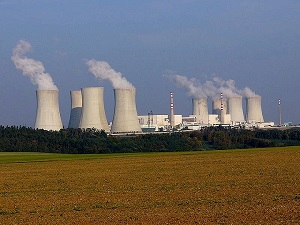
Thermal, electrical, and nuclear energy technologies
The great industrial revolution began when humans could make steam engines to harness heat. Its emergence led to an exponential increase in productivity and a large-scale division of labor and exchange. Then the use of electric energy and nuclear energy has increased human productivity by thousands of times, and greatly enriched the social material, and made great progress in living standards and quality of life.
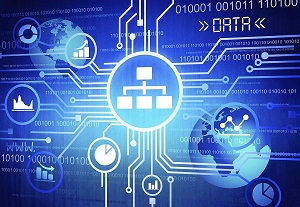
Information technology
The inventions brought about by the invention of computers and the Internet are unique in human history. Their emergence has enabled human beings to enter an unprecedented stage of development in the fields of science and culture, and also to make communication and cooperation among all human beings smooth. Nothing.
The importance of artificial intelligence is reflected in the future
The emergence of artificial intelligence will solve the limitations of human beings as organisms, including diseases, aging, and death. Intelligent machines will no longer have the actual upper limit of productivity, even the upper limit of thinking ability. With their power, human beings will be infinitely close to God for the first time. I know this sounds terrible, but it is likely to become a fact.
Modern technology, including artificial intelligence, has given mankind the power to surpass ancient gods, and our descendants are bound to have the same creativity and destruction as God. But humans don’t know where the road ahead will lead us. It’s hard to imagine what future generations like God will turn the future into. I hope God bless humanity to heaven instead of hell.


